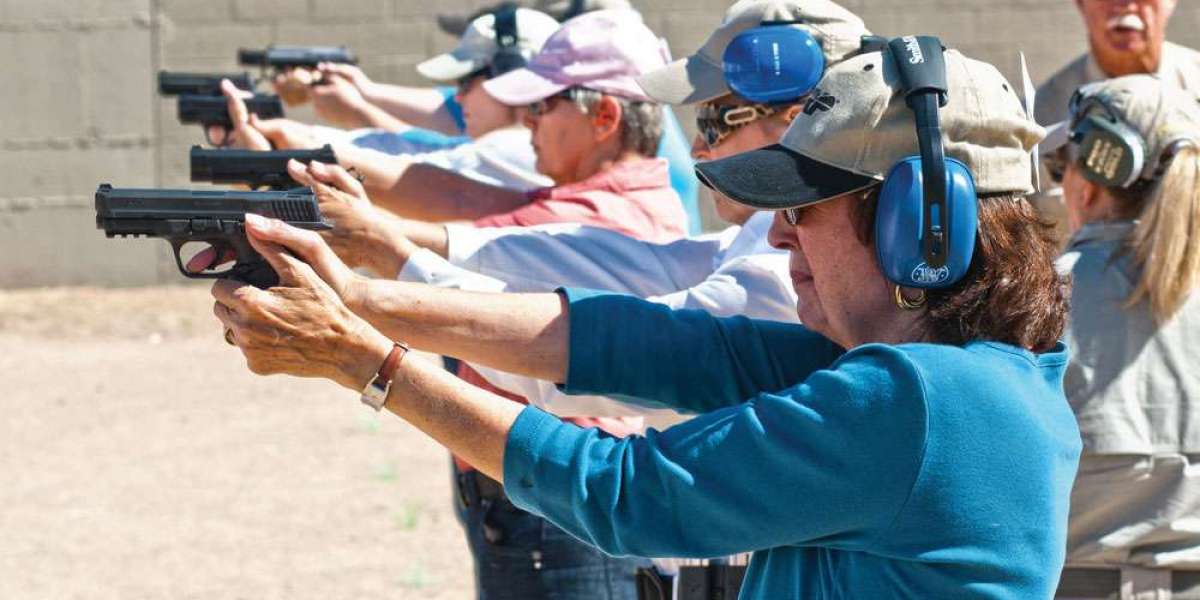Firearms training is not just for professionals or enthusiasts; it’s an essential step for anyone owning or using a firearm. Whether for personal safety, recreational shooting, or even specialized needs like firearm training for film, understanding the fundamentals is crucial.
This guide breaks down everything you need to know about firearms training, helping you make an informed decision about starting your journey.
Why Firearms Training is Essential
Firearms are powerful tools, and using them responsibly requires proper training. Without the right knowledge, the risks of accidents or misuse increase significantly. Training ensures you’re not only confident but also equipped to handle firearms safely and effectively.
Understanding Firearm Safety
Core Safety Principles
The foundation of all firearms training is safety. You’ll learn principles like:
- Always treating the firearm as loaded.
- Keeping your finger off the trigger until ready to shoot.
- Ensuring the muzzle is pointed in a safe direction.
These habits minimize risks and create a safer environment for everyone.
Storage and Handling
Proper firearm storage is just as important as handling. Training covers the use of safes, locks, and other security measures to prevent unauthorized access.
Developing Shooting Skills
Accuracy and Precision
Hitting a target takes more than just pulling the trigger. You’ll learn how to:
- Align sights properly.
- Control breathing for steadiness.
- Handle recoil effectively.
Stance and Grip
Your stance and grip significantly impact shooting accuracy. Firearms training teaches you the correct techniques, making your shots more consistent.
Legal and Ethical Responsibilities
Understanding Local Laws
Every country and region has its own firearm laws. Training includes detailed explanations of these regulations, ensuring compliance and reducing the risk of legal complications.
Self-Defense Scenarios
You’ll also learn the legal parameters for using firearms in self-defense, helping you act responsibly in high-pressure situations.
Mental Preparedness
Staying Calm Under Pressure
Handling a firearm in stressful situations requires a calm mindset. Simulated drills during training help you stay focused and make decisions quickly.
Situational Awareness
Firearms training emphasizes being aware of your surroundings, recognizing potential threats, and avoiding dangerous situations whenever possible.
Advanced Tactical Skills
Dynamic Shooting
Beyond stationary target practice, you’ll learn how to shoot while moving and use cover effectively, skills that are invaluable in real-life scenarios.
Close-Quarters Defense
Specialized training focuses on defending yourself in confined spaces, teaching techniques to maintain control and accuracy.
Firearm Maintenance and Care
Cleaning Basics
Regular cleaning is essential for firearm reliability. Training covers how to clean and lubricate your firearm properly to prevent malfunctions.
Inspection and Repairs
You’ll also learn to identify signs of wear and tear, ensuring your firearm remains in peak condition.
Building Confidence
Through Repetition
Confidence comes with practice. The more time you spend training, the more comfortable you’ll become with handling your firearm.
Ethical Responsibility
Firearms training instills a sense of responsibility, ensuring you understand the impact of your actions and prioritize safety above all.
Specialized Training Options
For Professional Use
If you work in law enforcement, security, or filmmaking, specialized courses cater to these specific needs, providing targeted skills.
Competitive Shooting
For enthusiasts, firearms training can improve your performance in competitions, focusing on speed, accuracy, and tactical strategies.
Choosing the Right Training Course
Finding Certified Instructors
Always opt for certified instructors with a proven track record. Their expertise ensures you receive quality training.
Tailored Courses
Look for courses that align with your goals, whether it’s self-defense, recreational shooting, or professional needs.
Lifelong Learning Opportunities
Advanced Certifications
As your skills grow, you can pursue advanced certifications, diving deeper into tactics, long-range shooting, or concealed carry techniques.
Staying Updated
Laws and best practices evolve. Continued training ensures you remain informed and compliant.
Conclusion
Firearms training is more than just learning how to shoot; it’s about becoming a responsible and skilled firearm user. From safety and legal knowledge to tactical skills and mental focus, the benefits of proper training are invaluable. Whether you’re new to firearms or looking to enhance your abilities, investing in a reputable training program is a decision that pays off for years to come.







